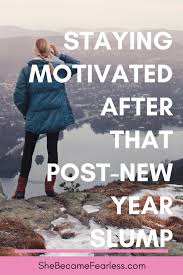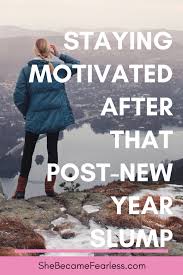The Thanksgiving leftovers are gone, Santa is back at the North Pole, but the weather is still frightful. Though the Christmas lights may stay up a few more weeks until a break between snowfalls and frigid temperatures, the mood changes after the holidays.
The dreary grey skies lead to darker days, but that doesn’t mean sleep comes any easier. Extra holiday pounds and cabin fever settles in… causing the January slump.
THE SLUMP:
What causes dry winter months? The cold weather outside has a lower humidity with very little moisture. When the heat inside increases it may add

warmth but doesn’t increase the moisture in the home.
This problem for many during the slump of winter causes dry skin, eyes, and throats. One common remedy is to add water in your environment through a humidifier that emits water vapor increasing the level of humidity that was decreasing dry weather.
THE SOLUTION:
- Make certain to keep the humidifier clean with vinegar to prevent mold growth.
- Use distilled water instead of tap water to minimize the white sediment that can form in the humidifier releasing into the air.
- Purchase the right size humidifier for the space needing moisture. Whole house humidifiers are available to purchase.
- Decide if you want a humidifier with a filter or one that needs frequent cleaning. Either way, proper maintenance provides for cleaner air.
Cold weather brings warmer showers removing the natural oils from your skin. Itchy, cracked skin can keep you up at night, but a fragrance-free moisturizer will help create the softer skin for sleeping.
Many brands specialize in thicker lotions to remedy drier skin; however, a physician can prescribe a stronger dose for eczema or infected cracking.
THE STEPS:
To help dry eyes during the winter months, try a few steps to calm the irritation.
- Apply eye drops a few times a day. Follow directions from the pharmacists and consult a doctor if the problem becomes chronic.
- Drink a lot of fluids – keeping your body hydrated will also help maintain the moisture in your eyes.
- Try staying away from blowing heat. While a nice cozy fire can add to the perfect winter evening, make sure to keep your distance so dry eyes don’t ruin it.

- Staring at your digital device for extended amounts of time can further dry out your eyes.
- Avoid rubbing your eyes to cause infection. Keep your hands washed when germs spread easier.
- Switching to your glasses can take the pressure off your contacts.
- Protecting your eyes from the sun and brittle cold is important in the winter months. Wear sunglasses, a hat with a visor, and 100 percent UV protection.
THE SINUSES:
The colder air also causes your nasal passages and throat to dry out from a lack of moisture. Bacteria and viruses increase due to a lack of mucus that normally trap infection. Help keep your nasal passages moist by using salt water (saline) drops or rubbing a little petroleum jelly into each nostril gently with a cotton swab. Both loosen the dryness.
Insulating the home also can close any air leaks in doors, windows, attics, and crawl spaces with caulk, spray foam, or weather stripping. Not only will it help save money on the heating bill but prevents the extra dry moisture inside.
Shifting the conversation to hydration, dehydration causes the body to not sleep well, also. Just like being dehydrated during the day in high heat, not drinking enough water in the winter causes the body to not function at 100 percent.
Along with irritability or fatigue, dehydration may cause leg cramps, dry mouth or nose that increase snoring, or a dry throat causing hoarseness in the mornings. Staying well hydrated all day is the best medicine all year.
Another physical issue harming the sleep slack is serotonin levels. Vitamin D is an important serotonin product that helps sleep-wake cycles function routinely. In the winter, we miss vitamin D with a lack of sunlight. Research has shown that a lack of sunlight can increase feelings of depression and fatigue and increase carb cravings as serotonin levels are affected.
THE SOLUTION:
The good news for January is New Year’s resolutions. After the holiday binging and stress, many add a resolution to lose weight.
According to NHS, winter vegetables – such as carrots, parsnips, and turnips – can be roasted, mashed or made into soup to provide a warming winter meal creating a comfort meal in itself. Visit the U.S. Department of Health and Human Services for recipes and tips to eat a balanced diet.
Resolutions also are a good time to add accountable partners to help maintain a healthier lifestyle. Adding exercise indoors or joining a gym in January also provide options to a healthy start during a month full of its own challenges.
Though January will continue to bring dreary skies and dry weather, these steps can bring some relief to your body and your home during the frigid temperatures. The Alaska Sleep Clinic can also provide answers to any questions regarding sleep issues.








